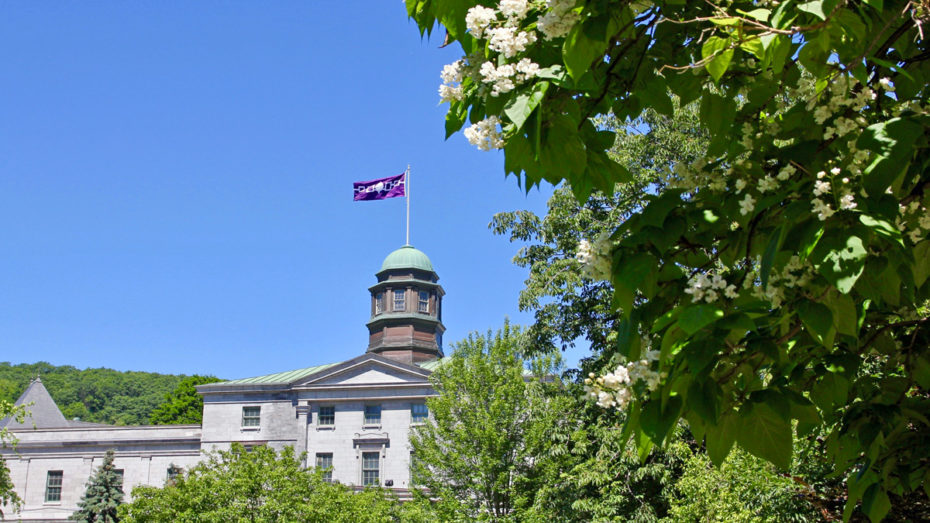McGill University has sent a bold message to Indigenous students and their communities by refusing to close for Truth and Reconciliation Day this upcoming Sept. 30. The federal government created this statutory holiday to give Canadians an opportunity to acknowledge and learn about the tragic history of residential schools. Educating oneself about the wrongdoings of Canadian predecessors is essential, but it is equally important to honour survivors and their communities who continue to deal with and resist ongoing colonialism. McGill prides itself on being a progressive institution, yet by denying students and staff the opportunity to participate in Truth and Reconciliation Day to the fullest, they miss an opportunity to support Indigenous students and to pave a path toward reconciliation with their own violent, colonial past and present.
Federal offices and banks are closed on Sept. 30, and numerous academic institutions across Canada—including Simon Fraser University and the University of Saskatchewan—are closing for the day to show their support for Indigenous communities. As one of the top schools in Canada, McGill should be leading by example, not failing to support reconciliation efforts.
It is ironic that the university’s motto is Grandescunt Aucta Labore, meaning “by work, all things increase and grow,” and yet they are unwilling to work to try and mend the relationship with the Kanyen’kehà:ka (Mohawk) people, on whose land McGill is built. It is even more hypocritical that the school closes for Patriots Day in May every year to recognize and celebrate the French rebellion that fought against English forces in the 19th century, but refuses to acknowledge that McGill exists because of the French colonial power that Indigenous people are currently resisting.
The university’s name perpetuates the tragic and ongoing legacy of English and French colonialism and systemic racial injustice in Canada. As a trader in the West Indies, James McGill enslaved at least two Indigenous children and three Black people while gaining immense wealth on the backs of other enslaved people. Even after the statue’s temporary removal due to vandalism, racialized staff and students have been pushing the university to decolonize for years. McGill’s reluctance to remove a statue speaks to the maintenance of colonial history as the status quo. But the removal of statues is but a small step of the more transformative steps McGill must take to address their colonial legacy. One institution beginning to assume responsibility for its ruinous past is X University—formerly known as Ryerson University—in Toronto. In response to widespread student activism, the Canadian university has declared it will change its school name and remove statues that celebrate colonial figures, including Egerton Ryerson––an architect of the residential school system. While there is still more work to be done, the X University case sets a precedent for how large institutions can begin to acknowledge their wrongdoings and work to repair relationships with Indigenous communities. Sam Howden, a Red River Métis student activist and organizer at X University who was among the first students to refer to the school as “X University,” emphasized that the student action that led to the name change was fundamental in centring Indigenous experiences on campus.
In 2016, McGill assembled a task force to implement changes laid out in the final report of the National Truth and Reconciliation Commission. McGill pledged to work on the university’s relationship with Indigenous communities by creating initiatives designed to encourage an inclusive environment for present and future Indigenous students. A negative environment is not conducive to academic productivity or individual growth, and McGill still has yet to unequivocally acknowledge the suffering the school has caused. While a closure alone would not allow McGill to rectify broken promises, its failure to do the bare minimum is a lost opportunity and an insult to Indigenous communities on campus.










But if people get the day off, do you really think they’ll spend time reading?
Two years running, I’ve had medical appointments on Sept 30 (it’s the 29th this year). Wearing orange makes more sense if you go somewhere. If someone actually asked, I could tell them how it’s not family history.
There is so much that people don’t know, but what I see is an amplification of whatever seeps through to mainstream. So people react to that, rather than synthesizing from multiple stories.
Too much focus on the past, and trying to change it, rather than dealing with the present and future. There’s a detachment, it’s someone else’s problem, in the first place and to fix. Everyone benefited, everyone who came over had the potential to spread disease. We are all capable of racism, it’s not just the hate spewers, and onky when we change do we notice.
I don’t know how to solve it. It’s not a rush to the barricades. It’s not just about schools teaching differently. It’s about reading for yourself, and finding not just the awful, but the joy and the neat things. It’s an ongoing thing, you change in increments, not by reacting to the first thing you see.
The work to keep the languages alive may be more important than the story of how they were taken away. Knowing that people are also the same as you is as important as what was done to them. Because all of it was based on them being “other”. And too much reporting is only about the struggle, and about them being elsewhere.
Nothing will change by having a holiday where you can avoid this stuff.
Shame on you!!
I thought you were one of the best Educational Institutes. BUT in view of this article…you just dropped down on my list
I was part of That Canadian History. My family, friends, community still feel the effects of trauma we endured for many years.
There is no Reconciliation when people or Institutes don’t stand in Solidarity towards Healing.
Colonialism is one of the most evil acts in this world. It should be outlawed and stay only in the past.